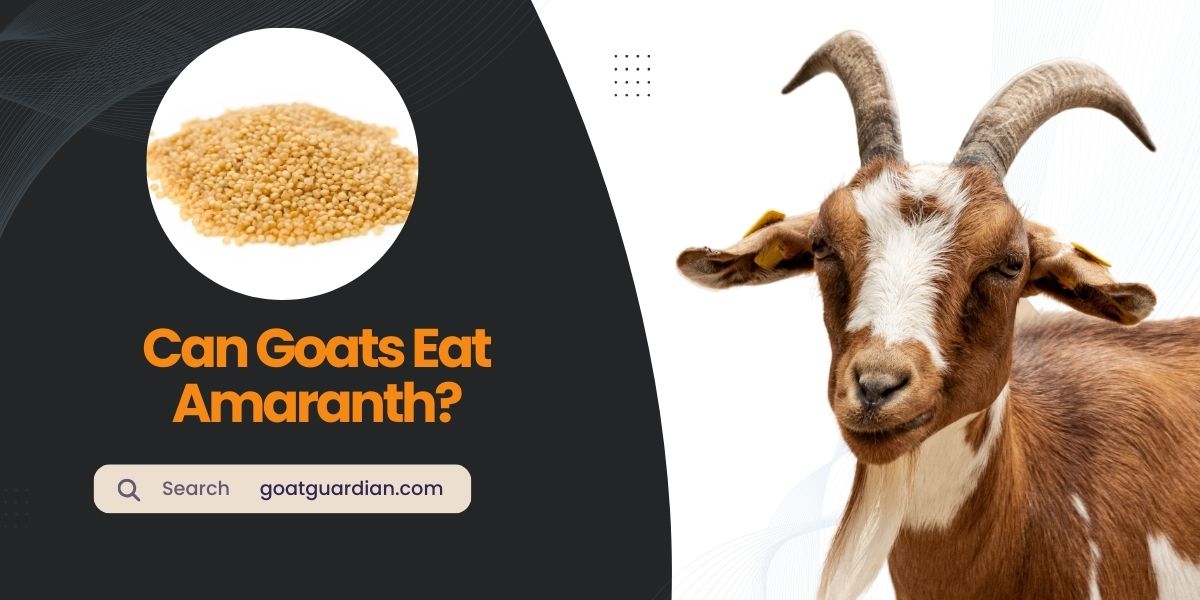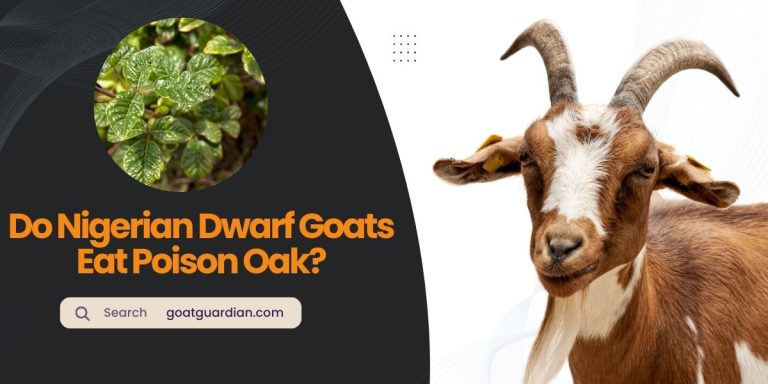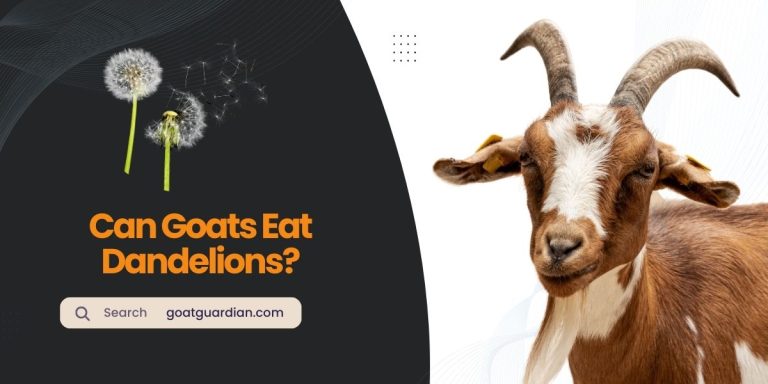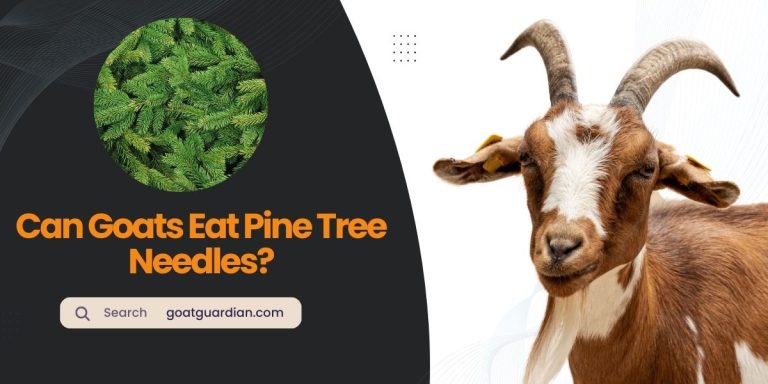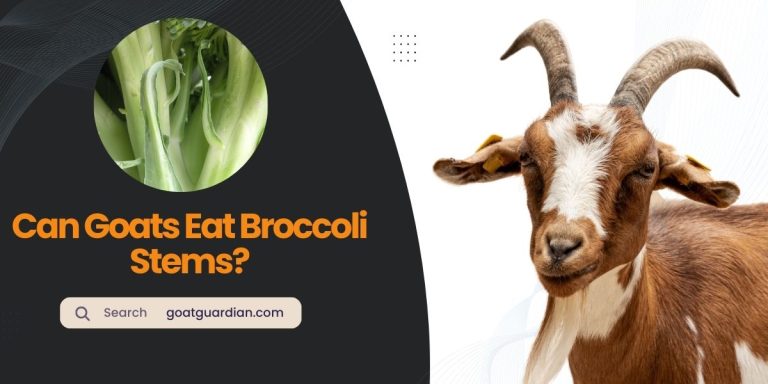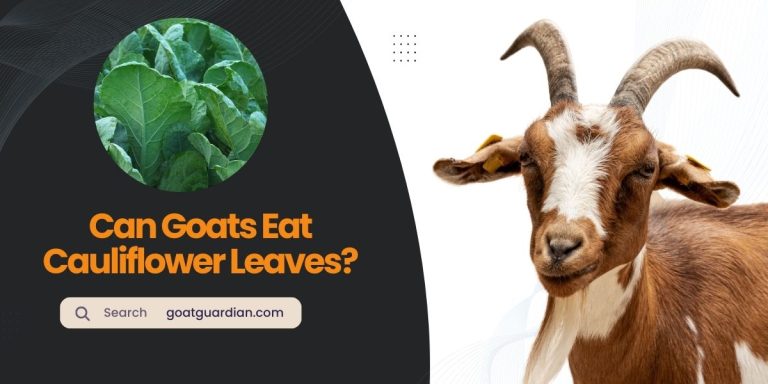Can Goats Eat Amaranth? (Benefits & Risks)
Yes, goats can eat amaranth. Both the leaves and seeds of amaranth can be a nutritious addition to their diet.
Amaranth leaves are rich in vitamins, minerals, and protein, making it a beneficial food for goats. It is important to note that while goats can eat amaranth, it should be given in moderation as part of a balanced diet. Amaranth is a versatile plant that is known for its nutritional benefits and wide range of uses.
It has been used as a grain, forage, or silage crop for various animals, including cows, chickens, pigs, and rabbits. When it comes to goats, can they eat amaranth? The answer is yes.
Both the leaves and seeds of amaranth can be included in a goat’s diet and provide them with essential nutrients. We will explore the benefits and risks of feeding amaranth to goats and discuss how to incorporate it into their diet effectively. So, let’s dive in and discover if amaranth is a suitable food choice for goats.
Introduction To Amaranth For Goats
Amaranth can be a nutritious feed option for goats, providing them with essential vitamins and minerals. The leaves and seeds of amaranth are both suitable for consumption by goats, offering a diverse and balanced diet.
Incorporating diverse feeds in a goat’s diet is important to ensure they receive all the necessary nutrients for optimal health and performance. While goats can eat amaranth, it is essential to be aware of any potential risks or side effects.
It is recommended to introduce amaranth slowly into a goat’s diet and monitor their response. As with any new feed, it is advisable to consult with a veterinarian or livestock nutritionist to ensure a well-balanced and safe diet for goats.
Nutritional Profile Of Amaranth For Goats
| Exploring the vitamins and minerals in amaranth |
Can goats eat amaranth? Yes, goats can eat amaranth. Both the leaves and seeds of amaranth can be a nutritious addition to their diet. Amaranth leaves are rich in vitamins, minerals, and other essential nutrients that can support the overall health and well-being of goats.
They provide protein content that is beneficial for goats, especially for their growth and muscle development. In addition, amaranth contains phenolic compounds that can improve the performance and health status of goats.
When it comes to feeding goats with amaranth, all parts of the plant can be consumed – leaves, stalks, and seeds. Goats can eat amaranth either fresh or dried. The stalks can be finely chopped and added to their feed mix as bulk.
It is important to note that while amaranth is generally safe for goats, it is always recommended to introduce new foods gradually and observe the reactions of goats to ensure they tolerate it well.
In conclusion, amaranth can be a valuable addition to a goat’s diet, providing essential nutrients and supporting their overall health. However, it is best to consult with a veterinarian or animal nutritionist to determine the appropriate amount and frequency of feeding amaranth to goats.
Benefits Of Amaranth For Goats
- Amaranth has shown to improve performance and health status of monogastric animals because of its high nutritional value and availability of phenolic compounds.
- It has been used as a grain, forage, or silage crop for many animals including cattle, chickens, pigs, and rabbits.
- Both the leaves and seeds of amaranth can be a nutritious addition to goats’ diet.
- Amaranth leaves are rich in vitamins and minerals.
- The stalks of amaranth can be chopped finely and fed as bulk in a homegrown feed mix.
- Every part of the plant is edible.
- Goats can nibble the leaves off of wild amaranth, but generally not enough to kill the plant.
- Tilling is not recommended as it may cause wild amaranth to spread.
Incorporating Amaranth In Goats’ Diet
Yes, goats can eat amaranth. Both the leaves and seeds of amaranth can be a nutritious addition to their diet. Amaranth leaves are rich in vitamins, minerals, and other essential nutrients. It is important to note that goats should not solely rely on amaranth as their primary food source.
It should be fed in moderation and as part of a balanced diet. Goats can consume amaranth in various ways. Leaves can be fed either fresh or dried, and the stalks can be chopped finely and mixed with other feed.
It is recommended to provide small portions initially and observe how goats react to it. If they tolerate it well, you can gradually increase the amount. Always ensure that the amaranth is free from any pesticides or chemicals before feeding it to your goats. Consulting a veterinarian or an animal nutritionist can also provide valuable guidance regarding the recommended dosage and feeding practices for amaranth.
Potential Risks And Considerations
Can Goats Eat Amaranth:
Amaranth can be a nutritious addition to a goat’s diet. Both the leaves and seeds of amaranth are edible and rich in vitamins and minerals. However, it is important to properly introduce amaranth into a goat’s diet to avoid any digestive issues.
To identify toxic varieties of amaranth for goats, it is recommended to consult with a veterinarian or animal nutritionist. Livestock affected by these toxins include pigs, cattle, sheep, goats, and horses.
Symptoms of poisoning may include muscle weakness, abdominal distension, ataxia, and knuckling at fetlock joints. Therefore, it’s crucial to ensure that the amaranth being fed to goats is safe and free from any harmful toxins.
Frequently Asked Questions On Can Goats Eat Amaranth
What Animals Can Eat Amaranth?
Amaranth can be eaten by cattle, chickens, pigs, rabbits, and goats. It is nutritious and beneficial for their health.
Is Amaranth Good For Livestock?
Yes, amaranth is good for livestock. It has high nutritional value and phenolic compounds that can improve the performance and health of animals like cattle, chickens, pigs, and rabbits.
Do Goats Eat Palmer Amaranth?
Yes, goats can eat palmer amaranth. Both the leaves and seeds of palmer amaranth are safe and nutritious for goats to consume.
Can Goats Eat Spiny Amaranth?
Yes, goats can eat spiny amaranth. They can consume both the leaves and the seeds, which provide them with a nutritious addition to their diet.
Conclusion
Goats can indeed eat amaranth. Both the leaves and seeds of amaranth provide nutritious benefits to their diet. Rich in vitamins, minerals, and high nutritional value, amaranth can be a valuable addition to a goat’s feed. However, it is important to ensure that goats are not consuming excessive amounts of amaranth, as it may have negative effects on their health.
As with any dietary changes, moderation is key when introducing new foods to goats.
